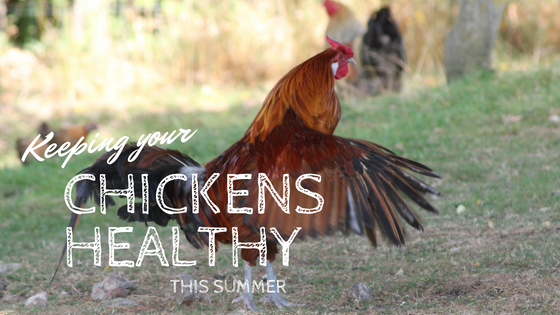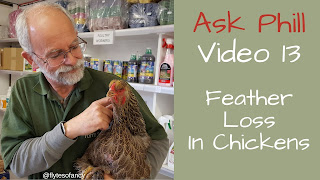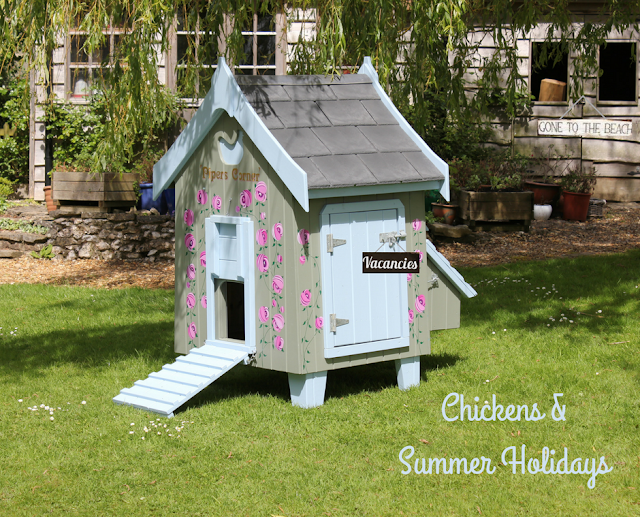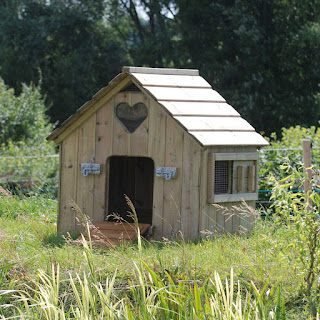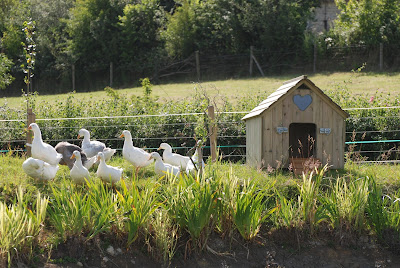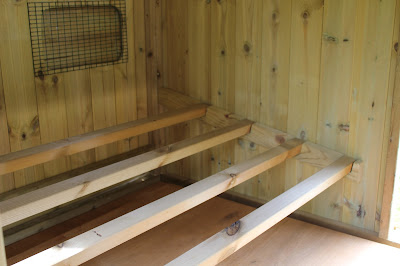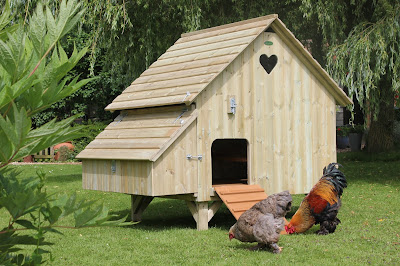Hot weather care for chickens
The heat has been causing chicken keepers concern this year, with some of you reporting your chickens going off lay, or generally appearing stressed by the heat, so I made a little video with suggestions of ways to keep your chickens cool this summer. Check it out here:
The heat is not the only thing that is troublesome to your chickens at this time of the year, there are other things you should to watch out for if you are going to keep your chickens safe and well.
Plants poisonous to chickens
For those chickens lucky enough to be able to free-range, there are some real dangers lurking in our gardens and paddocks as flowers turn to fruit and veg, and leaves wilt and become beak height. Chickens will usually avoid bitter tasting plants but, if you see your chicken has collapsed or suffering with convulsions, he or she may have eaten something poisonous.
Plants poisonous to chickens include;
- Tomato Plants: Although the fruit and seeds are a wonderful treat, the leaves, stems and vines are poisonous.
- Rhubarb Leaves: These leaves contain high amounts of oxalic acid which can cause kidney failure
- Potato Plants: A member of the Nightshade family, Potato plants are poisonous to chickens
- Uncooked Beans: Contain hemaglutin, which is very poisonous to birds
- Lupins: As beautiful as those blue and pink spires are, keep your birds away! The plant can cause nervous system problems.
- Periwinkle (Creeping Myrtle): Can also cause nervous system failure and death
- Foxglove: Lovely to look at but contains digitalis, a cardiac drug that causes the heart to slow down.
- Holly: Ingestion of leaves can cause vomiting and diarrhoea.
- Advocados: Contains a toxin that can be fatal, not only to poultry but to dogs, cats and cattle!
- Egg Plant: Like the Rhubarb, the leaves are poisonous to chickens.
Poultry runs in Summer
Chickens in a run might be free from the poisonous hazards of free-ranging but there can still be issues to consider in the run in the hot weather.
We are sure that you have remembered to provide some shade for your flock with this intense sunshine but too much shade can also be bad for your chickens' health, as can a change in diet. To keep your chickens healthy this summer, we recommend you:
- Do not cover the entire run with shade. Although they do need some shade to cool down, chickens also need the full spectrum of UV rays to help them process Vitamin D, important for good health and egg production.
- Do not give too many treats. With the longer days, extreme heat and bored chickens, it may be tempting to give treats. We would advise against this, chickens will become fat and ill. While you might think it a good idea to give your chickens lots of succulent treats, this should not be a regular occurrence! Concentrate on a balanced diet of layers pellets, with a little corn as a treat. Any extras should be no more than 10% of their feed.
Flies and bacteria are also a health hazard when chickens are confined to an area that is fouled and the weather is warm. We would suggest a ground sanitising powder which can simply be sprinkled on the ground. Containing DEFRA approved Halamid disinfectant and citronella, it helps to keep the run clean and fresh, discouraging flies and harmful bacteria.
If flies are becoming a big problem for you and your chickens, the Red Top Fly Trap is the ultimate fly trap and carries on working for up to 12 weeks. Just add water and hang it up!
- If your chickens appear to be off their food, our best advice would be to feed at the cooler times of the day, early in the morning and late afternoon. It is important not to feed too many treats as their pellets needed to balance their diet, may seem less appealing.
- Make sure your chickens have access to plenty of cool water and check drinkers frequently. Chickens may not drink water when it's warm and harmful bacteria is likely to grow in drinkers more quickly. To combat algae growth and give your flock a boost, add some Apple Cider Vinegar. (Use in plastic drinkers only).
- Create some shady spots, make a dust bath and if it's really hot, try spraying the ground with water, as evaporation will cool the air and give your birds some respite from the heat.
- If you are transporting birds, they will die if transported in the boot, so strap their carrier in the car and open some windows!
- If you suspect your chickens are unwell as a result of heat-stroke or poisoning, contact your vet without delay.
If you have any questions about any of the products mentioned or if you want to ask me a question to be featured in a future #AskPhill video, leave a comment below, or call us on 01300 345229 to speak to a member of the FSF Team.Thanks for Reading.
Phill

